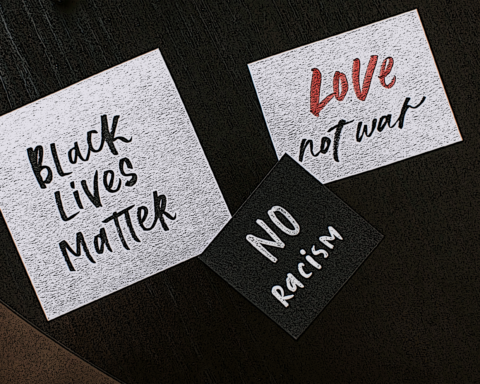“Noche UnSerena” is a sketch inspired by the 2016 arrest of Lawrence Crosby, then a PhD student at Northwestern University. Crosby was falsely accused of stealing his own car, after police received a report from a young woman. This piece takes on her perspective, and imagines her crime as the act of creation. In attempting to be a ‘good American’, she becomes like Dr. Frankenstein—giving life to a monster that she can no longer control. The title yields from the Luis de León poem “Noche Serena” (Serene Night), which catalogs a setting not unlike that in which this disturbance occurs.
She knew not what she had done.
Except that rising sirens were now seeking through the Chattanooga Valley. The languid Southern night, a contemptuous backdrop, ensconced the little telling-girl, about five-eight. Would that it were possible to hide from the works of her hands!
Yet now, this elephantine creature was seeking her out in the thick East Tennessee night. It was either a trepidation of the spheres or her heart pulsating behind her slight chest, that caused the street to shake. She wanted to warn him, the driver of the navy-blue Dodge Stratus. A few yards away, he pulled a blue hood over a tuft of black curls; he was worsening his fate. The Stratus creaked away from the curb.
The sirens crested once more; she felt sorrow flood her breast. At the bend of the little avenue, red and white and blue lights danced on the base of a Confederate monument. They were coming to seek, not save.
She shook her suburban head, as if to reset time in this dear snow globe town. But the creature was at last upon them, with all the dancing lights of Terpsichore. The Stratus had only made it to the opposite corner when the men emerged from the devil’s discotech, annihilators pulled. Their navy bodies were long and lean, a mess of angles. One foot forward, one foot back. Hell-red brake lights shone on their twisted pilgrim faces.
The driver emerged, Bethsaida Beacons emblazoned on the blue hoody. She knew him, had seen that hard, fast jawline in the campus library. The nostrils of his bell-pepper nose now flared wider than the Bachman Tunnels. The headlamps of the Interceptors shone through each breathing portal, almost to the boy’s quaking mind. In his right hand, which was outstretched by command, the men saw themselves, saw their rat-red faces and charged.
And in the twinkling of an eye, they were upon him, and brought him down. He burbled to breathe but was permitted not. They broke him, took hold of his ivory spirit. They closed their fists and beat him. They pulled at his curly black beard.
“No!” rose from beneath the pile of police.
The Southern night was, again. The blanket of heat and narcolepsy found her, wrapped her, rocked her. This daughter of the regiment had served well—the men attested to this in the last look of love they left with her as they returned to whence, they came, well done, white daughter, well done. The bloody black body floated captive in the black hole behind them.
Kashif Graham is Outreach Librarian for Religion and Theology at Vanderbilt Divinity Library. His reading and writing interests are queer & Black lit, the 1920’s novels of racial passing, and the modern South. He holds a Master of Science in Information Sciences from the University of Tennessee at Knoxville, a Master of Arts in Church Ministry from the Pentecostal Theological Seminary, and a Bachelor of Arts in English Honors Literature and Spanish Language and Literature. He is currently working on a novel about an interracial gay couple living in East Tennessee.






Unbound Social